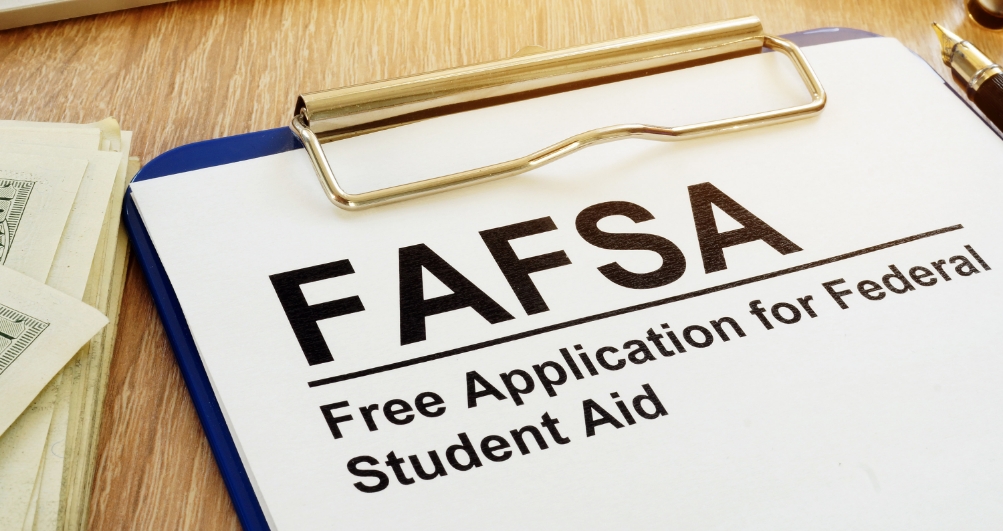Have you ever wondered if your job experience could count for more than just a paycheck? Well, you're in luck. The world of education is changing, and now, your work experience might just help you earn college credit. This is great news, especially if you're working full-time or have years of industry experience under your belt.
Think about it: your real-world skills could give you a head start toward a degree. This means you could spend less time in the classroom and more time using what you already know. We're going to dive into how this all works and what it could mean for your education and career. It's a game-changer for anyone looking to blend their professional life with academic goals.
Types of college credit for work experience
When it comes to turning your work experience into college credit, there are mainly two routes: transfer credits and Prior Learning Assessment (PLA). Let's break these down.
Transfer Credits are credits that a college or university may accept from your previous educational or professional experiences. This can include courses from other institutions or standardized exams like the College-Level Examination Program (CLEP) and DANTES Subject Standardized Tests (DSST). CLEP exams allow you to demonstrate your proficiency in specific subjects and earn college credit. DSST tests are subject-level exams that provide a similar opportunity, often focusing on more specialized or technical fields.
Prior Learning Assessment (PLA), on the other hand, is a more personalized approach. It evaluates the learning you've acquired outside of a traditional academic setting, such as work experience, volunteer activities, or self-directed study. PLA can involve a variety of methods, including portfolio assessments, where you provide evidence of your learning, and interviews or practical examinations. Professional certifications you've earned can also play a crucial role in PLA, as they often signify a level of expertise and knowledge comparable to college-level learning.
The College-Level Examination Program (CLEP) deserves a special mention. It's a group of standardized tests that assess college-level knowledge in several subject areas. If you pass a CLEP exam, you can earn college credit at thousands of higher education schools. This program is particularly beneficial for those who have gained substantial knowledge in a field through work or independent study and wish to bypass certain introductory courses in college.
In summary, whether it's through transferring standardized test credits or a detailed assessment of your professional life, these pathways acknowledge and reward the experiential learning you've achieved outside the classroom.
Eligibility and process
When aiming to convert work experience into academic credit, your first step should be enrolling in an accredited institution. Accreditation is crucial as it ensures the quality and recognition of your earned credits.
Next, academic advisors are key in this process. They guide you through the institution's policies and help you compile and present your work experience effectively. Their role is crucial in navigating the approval process for your credits.
The number of credits you can earn varies by institution and is based on factors like the relevance, depth, and breadth of your experience. This evaluation may involve preparing portfolios, interviews, or practical assessments to demonstrate that your experience equates to college-level learning.
In short, choose an accredited institution and work closely with an academic advisor to effectively translate your work experience into valuable prior learning credits.
Advantages of earning college credit for work experience
Earning life experience credits comes with a host of benefits, making it an attractive option for many learners. Here are some key advantages:
- Accelerated degree completion. One of the most significant benefits is the potential to complete your college degree faster, whether it's an associate or bachelor's degree. By converting your professional experience into college credits, you can bypass certain college courses, reducing the overall time you spend in the classroom. This fast-tracking can lead to quicker graduation, allowing you to advance your career or pursue further education sooner.
- Cost savings. Alongside saving time, this approach can also save you money. Fewer courses mean fewer tuition fees, textbooks, and related expenses. This can make higher education programs more accessible and lessen the cost of obtaining an undergraduate degree.
- Catering to diverse learners. This method of earning credits is particularly beneficial for adult learners, working professionals, and those with family responsibilities. It acknowledges the value of practical experience and provides a more flexible route to academic qualifications. This inclusivity makes higher education more attainable for those who might not fit the traditional student mold.
Challenges and considerations
Earning college credit for work experience is beneficial, but it comes with its own set of challenges and considerations:
- Prerequisites. Your learning experience must meet specific criteria set by the institution, like relevance and duration.
- Competency assessments. Be ready for evaluations like portfolio reviews or exams to validate your experience.
- Self-paced learning. This process often requires self-motivation, as you'll need to organize and present your experience independently.
When selecting an accredited institution, focus on:
- Research accreditation. Verify the institution's accreditation for the validity of your credits.
- Credit transfer policies. Understand how your experience fits with the institution's credit transfer policies.
- Support services. Look for institutions offering good support, like academic advising.
- Program relevance. Choose a program that aligns with your work experience and career objectives.
Preparation and understanding of these aspects are key to successfully earning college credits or credit hours for your professional development.
Specific fields and professions
The opportunity to earn college credit for work experience significantly impacts various fields and professions, each with its unique aspects:
- Healthcare. Professionals in healthcare, such as nurses or technicians, often accumulate a wealth of practical experience. Colleges may offer credits for this hands-on experience, especially for skills that align with coursework in nursing, health administration, or public health programs.
- Information Technology (IT). In the fast-evolving IT sector, professionals frequently learn on the job or through certifications. Institutions may grant credits for experience in areas like programming, network management, or cybersecurity, recognizing the value of industry-specific skills.
- Humanities. Translating work experience into credits can be more nuanced for fields like humanities. Professionals with experience in writing, communication, or cultural studies may find opportunities to earn credits in related academic programs.
- Criminal Justice. Experience in law enforcement, legal services, or corrections can be directly relevant to criminal justice programs. Institutions may offer credits for practical knowledge gained in these areas, enhancing academic study with real-world insights.
- Human Resources (HR). Through their work in training, recruitment, and employee relations, HR professionals develop skills that are directly applicable to many business and management courses. Their experience can lead to credits in HR-related programs.
- Corporate Training Programs. Participants in structured corporate training programs may also find their experiences eligible for academic credit. These programs often cover topics similar to business or management courses and can provide a solid foundation for further academic study.
In these fields, earning college credits for work experience acknowledges your professional development outside traditional academic settings. It offers a flexible and practical way for professionals to enhance their academic qualifications, tailor their education to their career path, and potentially expedite their degree completion.
Military experience and college credit
Many institutions have specific policies to translate military training and experience into college credit. This is based on the idea that the training service members receive in the military often parallels college-level learning. Leadership, technical skills, and specialized knowledge are commonly considered for credit.
The DSST program plays a crucial role in this process. Originally developed to assist military personnel in their educational pursuits, these tests now provide a pathway for both military and civilian students to demonstrate college-level proficiency in various subjects. Passing a DSST exam can result in college credits, aiding in completing degree programs.
The DSST exams cover a wide range of subjects, including business, physical science, humanities, and social sciences. The breadth of these exams allows military personnel to capitalize on their training and experiences in various fields.
Financial aid and scholarships
Students earning college credit for work experience have access to various financial aid and scholarship opportunities, which can significantly reduce the overall cost of their education.
- Financial aid. Most college students are still eligible for common forms of financial aid, such as federal grants, loans, and work-study programs. Completing the FAFSA is essential to determining eligibility.
- Scholarships. Some universities, private entities, and community organizations offer specific scholarships targeted at non-traditional students or those with substantial work experience.
- Reduced tuition costs. By converting work experience into college credits, students can decrease the number of required courses for their degree, directly lowering tuition and related expenses.
- Increased accessibility. This approach not only eases financial burdens but also makes higher education more accessible, especially for adult learners balancing education with other responsibilities.
In essence, integrating financial aid options with the reduced course load can make pursuing a degree more feasible and affordable for those with professional experience.
Unlocking your educational potential
Earning college credit for work experience offers a unique way to advance your education, but being aware of the challenges is essential. Key steps include understanding the prerequisites for credit eligibility, preparing for competency assessments, and being ready for self-paced learning. Each institution has its own criteria, and aligning your experience with these is important.
When selecting the right accredited institution, focus on their recognition of work experience, credit transfer policies, and available support services. This choice is critical in ensuring your professional experience is valued and effectively translated into academic success.
In conclusion, leveraging work experience for college credit can significantly enhance your educational journey, blending professional achievements with academic goals. For guidance in navigating this path, College Rover is an invaluable resource. It offers tools to research schools and programs, helping you make informed decisions about your education. Visit College Rover to explore your options and maximize your educational potential.











.jpg)










